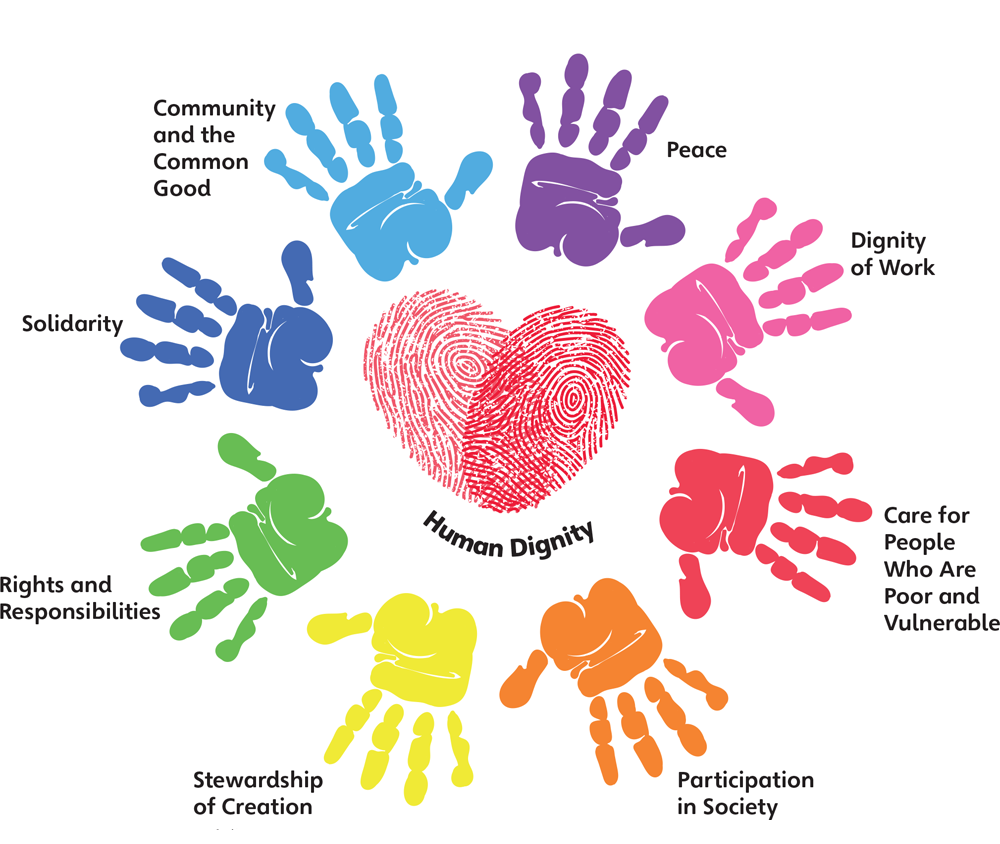MADE IN THE IMAGE OF GOD, the IMAGO DEI

Human Dignity
“All principles of Catholic social teaching are based on the truth of human dignity. Being created in God’s image means that, with God’s help, we can be like God and glorify Him with our thoughts, actions, and words.”
(Growing in Faith, Growing in Christ – Grade 6)

Participation in Society
“In a global culture driven by excessive individualism, our tradition proclaims that the person is not only sacred but also social.”
(Sharing Catholic Social Teaching: Challenges and Directions)

Stewardship of Creation
“On a planet conflicted over environmental issues, the Catholic tradition insists that we show our respect for the Creator by our stewardship of creation.”
(Sharing Catholic Social Teaching: Challenges and Directions, p 6)

Rights and Responsibilities
“Every person has a fundamental right to life and a right to those things required for human decency. Corresponding to these rights are duties and responsibilities – to one another, to our families, and to the larger society.”
(Sharing Catholic Social Teaching: Challenges and Directions, p 5)

Solidarity
“Solidarity highlights in a particular way the intrinsic social nature of the human person, the equality of all in dignity and rights and the common path of individuals and peoples towards an ever more committed unity.”
(Compendium of the Social Doctrine of the Church, p 494)

Community and the Common Good
“By common good is to be understood the sum total of social conditions which allow people, either as groups or as individuals, to reach their fulfilment more fully and more easily”
(Catechism of the Catholic Church, p 1906)

Peace
“Working for peace can never be separated from announcing the Gospel, which is in fact the “good news of peace” addressed to all men and women. At the centre of “the gospel of peace” remains the mystery of the cross, because peace is born of Christ’s sacrifice.”
(Compendium of the Social Doctrine of the Church, p 493)

Dignity of Work
“Work is more than a way to make a living: it is a form of continuing participation in God’s creation. If the dignity of work is to be protected, then the basic rights of workers must be respected – the right to productive work, to decent and fair wages, to organize and join unions, to private property, and to economic initiative.”
(Sharing Catholic Social Teaching: Challenges and Directions, p 5)

Care for People Who Are Poor and Vulnerable
“In a world characterized by growing prosperity for some and pervasive poverty for others, Catholic teaching proclaims that a basic moral test is how our most vulnerable members are faring.”
(Sharing Catholic Social Teaching: Challenges and Directions, p 5)